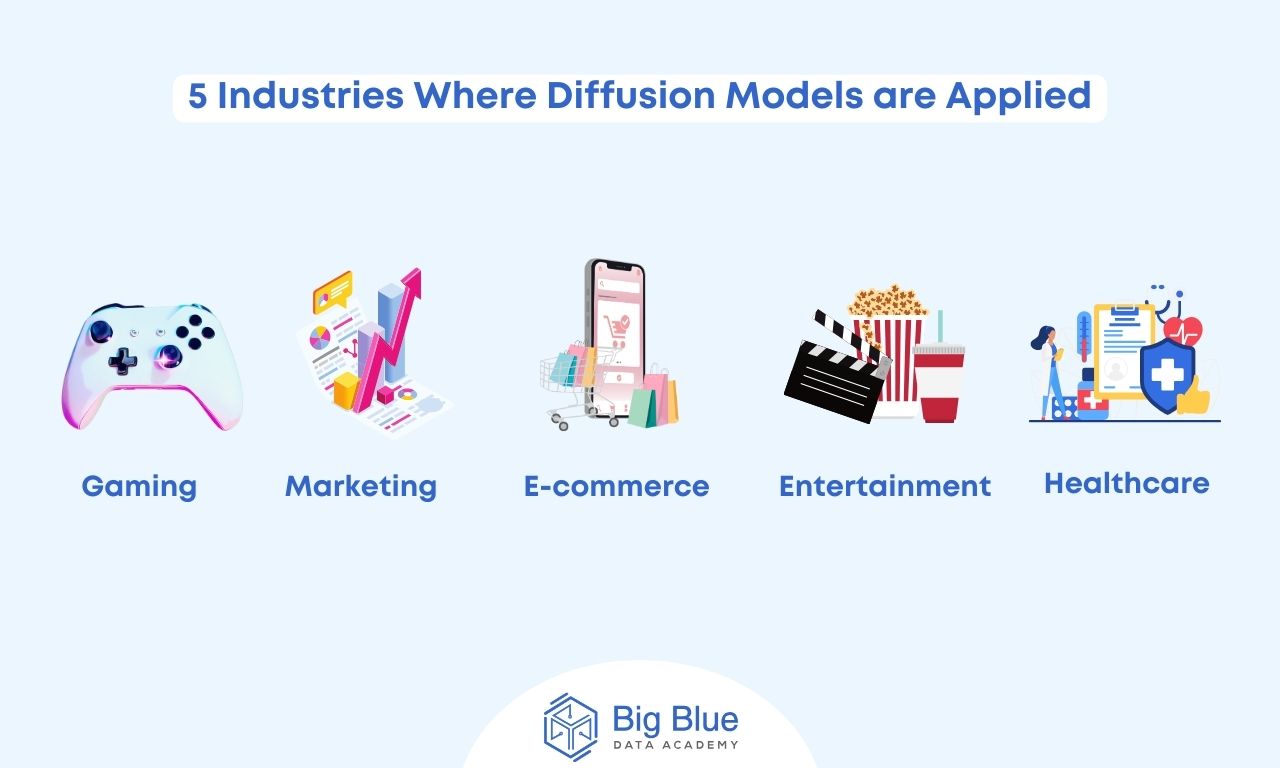Diffusion Models: Definition, Importance & Applications (2024)
Generative AI has brought revolutionary developments in the field of technology and data science.
Diffusion models are a type of Generative AI model with many advantages, possibilities, and applications in a wide range of fields.
In today's guide, we will take a closer look at diffusion models and more specifically we’ll explore:
- What are diffusion models and how do they work?
- What advantages do they offer?
- What are some of their key applications?
Before we dive in, let's start with a basic definition.
What Are Diffusion Models and How Do They Work?
Diffusion models are a type of Generative AI model that has gained significant popularity in recent years and has brought radical developments to the field of machine learning.
The way they work is as follows.
They gradually add random noise to a dataset and then reverse this process to transform the noise into a structured output.
Through this process, these models learn to create synthetic data and present highly accurate and detailed results such as realistic images.
This method enhances the fidelity and accuracy of the data produced, with applications in various fields such as medical imaging and autonomous vehicles.
A particularly important and quite popular application of diffusion models is in DALL-E 2, OpenAI's image generation model, which has strong capabilities for generating high-quality images.
After seeing some basics about diffusion models, let's see why they are important.
Why Are Diffusion Models Important?
Diffusion models represent a significant advance in the field of Generative AI, possessing unique capabilities in generating high-quality synthetic data, images, video, and audio.
They are a powerful tool that can help make critical decisions when designing a model, innovating, as well as developing new products for many businesses.
They help decipher complex human behaviors, guiding marketing and retail strategies.
They can also overcome normalization challenges and have a strong advantage over other generative models such as GANs and VAEs, thanks to their distinct mechanisms that allow more accurate reproduction of real-world images.
Next, we have gathered some industries where diffusion models are used very effectively.
5 Industries Where Diffusion Models are Applied
Diffusion models have been successfully applied in a wide range of fields, demonstrating their flexibility and dynamics.

Some key examples are as follows:
Industry #1: Gaming
The gaming industry is a sector that has grown exponentially with the help of AI.
With the use of diffusion models, this industry has benefited and modernized thanks to the ability to create detailed environments, characters, and other elements in a realistic and interactive way.
Industry #2: Marketing
Diffusion models are also used very effectively in the marketing and market research industries to analyze trends in consumer decision-making.
They help predict demand as well as improve marketing tactics by deeply understanding consumer behavior.
Industry #3: E-commerce
In the e-commerce industry, diffusion models enable the creation of high-quality graphical products from text, improving visualization and product personalization to meet customer needs.
Industry #4: Entertainment
Diffusion models have a special place in the field of entertainment as well.
Diffusion models in particular are integrated into special effects tools, speeding up production while reducing costs.
Industry #5: Healthcare
Diffusion models have shown significant potential in the healthcare sector, and in particular in the field of medical imaging.
This is thanks to their ability to create high-quality samples from noisy data since the quality of medical images can significantly affect a patient's diagnosis and treatment outcomes.
Ramping Up
Diffusion models have brought radical developments thanks to their capabilities and wide range of applications, from graphic design and illustration to marketing and healthcare.
Their ability to generate high-quality, detailed data makes them a powerful tool for innovation and progress for any business looking to modernize its products and stand out from the competition.
So if you're involved in this subject and want to enrich your knowledge, read more related articles on our blog!


.jpg)